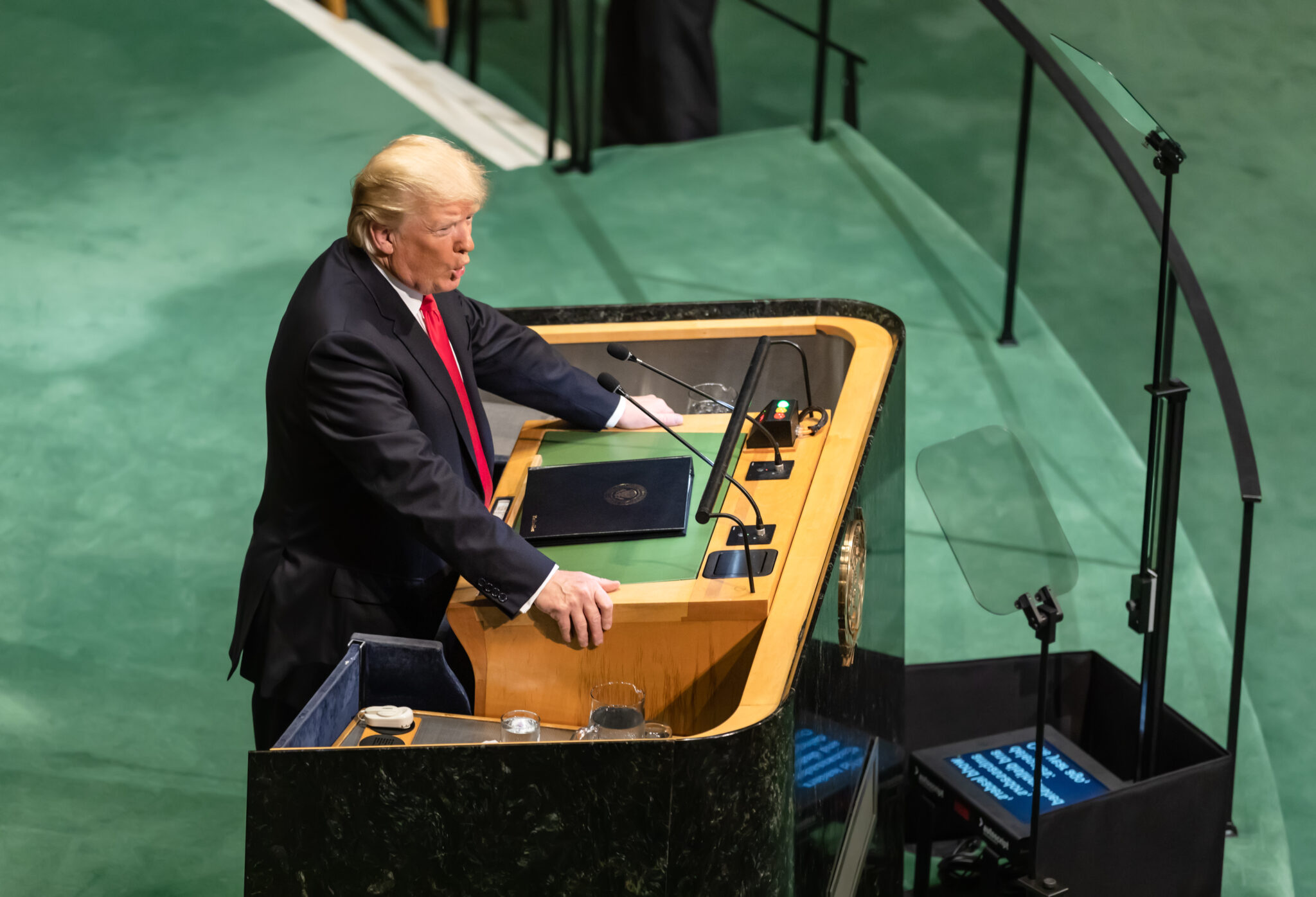President Donald Trump’s latest speech at the United Nations has everyone talking. On September 24, 2025, he stood before world leaders and delivered words that stunned the room. “Your countries are going to hell,” he said, pointing fingers at nations he blames for America’s problems. This bold talk came during his address to the UN General Assembly in New York City. It’s a clear sign of his “America First” view, but many say it leaves the US more alone on the world stage.
David Sanger, a top White House reporter for The New York Times, broke it down in a new video. He calls Trump’s words an “isolating stance.” That means the US might lose friends and allies. Sanger explains how this could hurt trade deals, fight against climate change, and efforts to stop wars. Trump’s speech pushes back against global groups like the UN. He wants countries to fix their own issues instead of leaning on America.
This isn’t new for Trump. Back in 2018, at his first UN speech, leaders laughed when he bragged about US wins. Now, in his second term, the tone is even tougher. The video from The New York Times shows clips of Trump speaking with fire in his eyes. Reporters Melanie Bencosme, Stephanie Swart, and Gabriel Blanco helped put it together. They show how Trump’s words echo his campaign promises to put US interests above all.
Why Did Trump Say This?
Trump’s speech focused on big global headaches. He talked about migration from poor countries, unfair trade, and weak borders. “Your countries are going to hell because of bad leaders and failed policies,” he said. He named places like Venezuela and parts of Africa as examples. Trump argued that the US spends too much helping others while they send problems our way, like drugs and crime.
In the video, Sanger points out the risks. When the US leader trash-talks allies, it weakens teamwork. For instance, NATO partners might pull back on defense spending if they feel attacked. On China and Russia, Trump’s lone-wolf style could make deals harder. Sanger says, “This stance tells the world America is done playing nice.” It’s a big shift from past presidents who built bridges at the UN.
The crowd at the UN didn’t cheer. Some delegates shook their heads. Others whispered in shock. Trump’s team sees it as strength. They say it’s time for honesty. But critics worry it makes the US look like a bully.
What Does It Mean for Everyday Americans?
You might wonder how UN speeches affect your life. Here’s the simple truth: Global ties matter for jobs, prices, and safety. If Trump pushes countries away, here’s what could happen:
- Higher Costs: Trade fights could raise prices on phones, cars, and food from abroad.
- Travel Troubles: Visas and flights might get stricter, making trips harder.
- Security Risks: Less help from allies means the US pays more to fight threats alone.
- Climate Delays: Trump doubts global warming pacts, so green jobs could slow.
Sanger warns that isolation hurts in a connected world. Pandemics, hacks, and terror don’t stop at borders. Without friends, America faces bigger bills and dangers.
Trump’s speech also ties to home politics. With midterms coming, he fires up his base. Polls show many voters like his tough talk. But city folks and young people want more teamwork abroad.
Echoes of Past UN Moments
Remember 2018? Trump said the US made “tremendous economic progress” under him. The room burst into laughter. It became a viral clip. This time, no laughs—just tense silence. The New York Times video pulls those old moments to show a pattern. Trump sees the UN as a club of losers. He wants reform or less US cash to it.
World leaders reacted fast. France’s president called it “regrettable.” China’s envoy said it ignores facts. Even some Republicans in Congress said tone it down. But Trump’s fans online cheered. “Finally, someone says it like it is,” one tweet read.
The video runs about five minutes. It mixes speech clips with Sanger’s calm voice-over. Graphics show maps of troubled spots Trump mentioned. It’s easy to watch and get the point: Trump’s world is us-versus-them.
Looking Ahead: A Lonely Road?
As the UN week ends, eyes are on what comes next. Will Trump meet with foes like Iran’s leader? Or skip summits to stay home? Sanger thinks this speech sets the tone for his term. “America First means America alone,” he says.
For the US, it’s a gamble. Strong words might force changes. Or they could backfire, leaving us weaker. Families watching news wonder if peace talks or aid will suffer.
Trump ended his speech with a call to action. “Fix your homes, or help us fix ours.” It’s classic Trump—direct and divide. The UN hall, once a place of hope, felt colder that day.
This moment marks a new chapter in US foreign policy. Will it lead to wins or walls? Only time will tell. But one thing’s clear: Trump’s not afraid to shock the world.






















